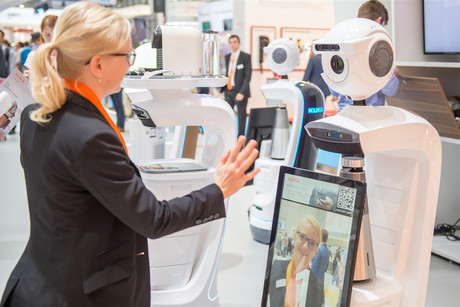What do we want from the electronics of the future?

Over 80% of consumers all around the world would like ‘electronic devices of the future’ to make their lives easier, but users have very different views on what artificial intelligence (AI), robotics and digitalisation should and shouldn’t be allowed to do.
That’s according to a survey of 7000 consumers from the US, China, Japan, Germany, France, the UK and Italy, conducted for the electronica trade fair and conference and published as part of the electronica Trend Index (2nd edition).
The concept of voice control is clearly popular, with around 60% of consumers worldwide in favour of electronic devices being able to engage in dialogue with humans in the future — along the lines of familiar voice-activated assistants such as Siri, Alexa and Cortana. Chinese (85%), American (68%) and Italian (66%) consumers are particularly enthusiastic about being able to converse with electronic devices in the future, although 17% of consumers all around the world strongly object to the concept of talking electronics.
There is even more of a consensus among consumers that digital assistants shouldn’t be too ‘human-like’, with 72% in favour of robots with artificial intelligence remaining clearly recognisable as machines. The strongest advocates for this are Italians (78%) and Americans (77%). Even in Japan, which comparably has the lowest level of support, there is still a clear majority of 69% in favour.
By contrast, a global average of 72% of respondents are in favour of robots using artificial intelligence to learn autonomously and respond to new situations. The same percentage would like robots to provide decision-making support, although control should never be relinquished by humans.
This basic view generally applies to the use of artificial intelligence in electronic devices. The large majority of consumers would like AI to only provide assistance and not replace human thought processes — according to the survey, 71% of the world shares this opinion. That being said, the number of people adhering to this view is declining in some countries. According to the 2016 electronica Trend Index, 82% of Germany’s respondents shared this view, compared to the current figure of just 67%.
Opinions are meanwhile divided as to whether a machine should be able to recognise human feelings and react to them. In Japan and European countries, only around half of respondents are in favour. In the USA this figure is just under 60%, while China has the most positive response at 85%.
“As the electronica Trend Index shows, consumers all around the world are thinking long and hard about the electronics of the future,” said Falk Senger, Managing Director of Messe München and organiser of electronica. “At electronica 2018, from November 13–16 in Munich, over 3000 exhibitors from 50 countries will be demonstrating just how rapidly the world of smart electronics is developing.”
Electronex Sydney a major success
More than 1000 trade visitors and delegates have attended the Electronics Design & Assembly...
Gartner: Global AI chips revenue to grow 33% in 2024
Gartner has forecast that the revenue from AI semiconductors globally will total $71 billion in...
Electronex Expo returns to Sydney for 2024
Electronex — the Electronics Design and Assembly Expo will return to Sydney in 2024,...





